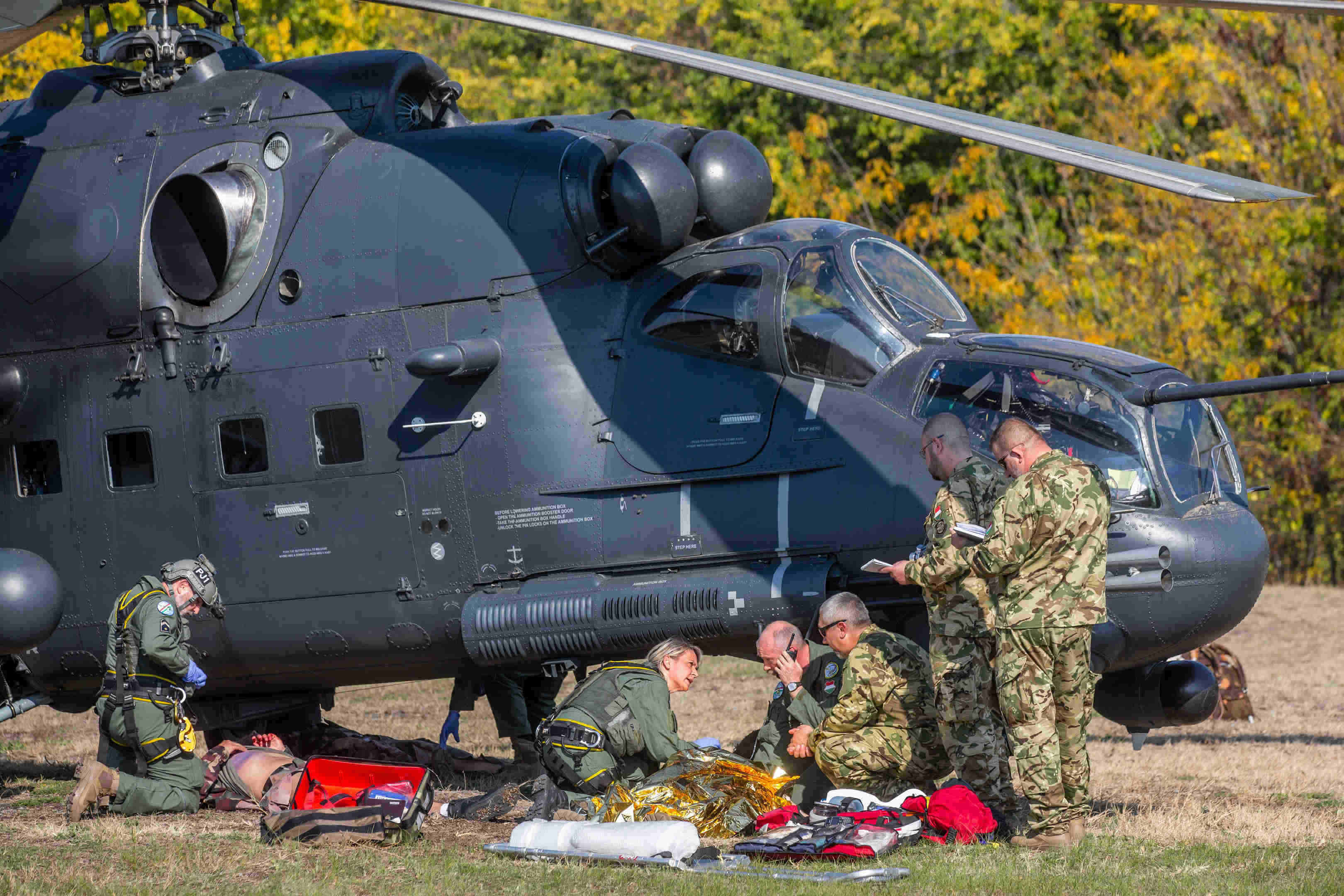Defense minister flags new commands in Hungary
Defence Minister Tibor Benkő assessed progress made towards establishing two military commands for NATO in Hungary and held talks with his German counterpart after a NATO ministerial meeting in Brussels on Friday.
Hungary has sent a letter signed jointly with Croatia to NATO’s secretary general informing Jens Stoltenberg about plans to establish a Multinational Division Command for Central Europe in Hungary, Benkő told reporters after the two-day meeting.
The new command would give Hungary a decisive role in guaranteeing security in the region, the minister said.
Integrated with NATO’s command structure, it would also enhance capabilities, he said.
Further, Hungary and Croatia signed a letter of understanding together with Slovakia and Slovenia on setting up a Regional Special Operations Component Command (R-SOCC) in central Hungary, Benkő noted.
Headquartered in Szolnok, R-SOCC will be tasked with training the four NATO countries’ special operations troops, Benkő said. Austria, which is not member of NATO, has already indicated its intention to join R-SOCC’s work, he added.
Benkő also said that he had held talks with his German counterpart on the sidelines of the meeting. Annegret Kramp-Karrenbauer praised Hungary for its defence and military reform programme which she said could mandate the country’s army to become a leading force in central Europe.
Speaking in terms of Hungary’s contributions to NATO missions, Benkő noted that the country has increased its number of troops serving in Kosovo from 1,000 to 1,200 and is planning further increases.
This brings the number of Hungarian troops serving in foreign peacekeeping missions each year to 2,200-2,400, the defence minister added.
As regards hybrid warfare, Benkő said Hungary considers it a major challenge of the 21st century, underscoring measures taken towards fully preparing to tackle it. Among the measures, he noted the establishment of a military training centre for countering cyber-attacks in Szentendre near Budapest. Hungary has also decided to join the Helsinki-based European Centre of Excellence for Countering Hybrid Threats, Benkő said.
Source: MTI
please make a donation here
Hot news
National Bank of Hungary introduces HUF 50,000 coin
Ecuador’s floral wonders: The enigmatic orchids take centre stage in Budapest
Finance Minister Varga flags continued tax relief
Fidesz to modify electoral rules in Hungary – Budapest Mayor Karácsony forms harsh judgement
Hungary hosts European SME Assembly in Budapest
Attention! Traffic changes and public transport disruptions tonight in popular Budapest district






2 Comments
To have a “decisive role” in guaranteeing security in the region, Hungary needs a much larger military. An armed force of only 30,000 is not adequate to ensure security of the region it is even inadequate to defend Hungary in the event of an attack. Recent purchases, long overdue, of modern arms (tanks, self propelled guns, anti tank weapons and helicopters) are but a baby step in the right direction. To achieve what Hungary is trying to achieve you need an armed force of about 80,000-85,000, hundreds of modern tanks and at least 70-80 modern fixed wing combat planes.
Even 50 000 regulars and a reserve of 25 000 would be a great improvement. 40-50 Eurofighters and more anti-tank/self propelled guns would act as a deterrent. The population has to increase substantially.